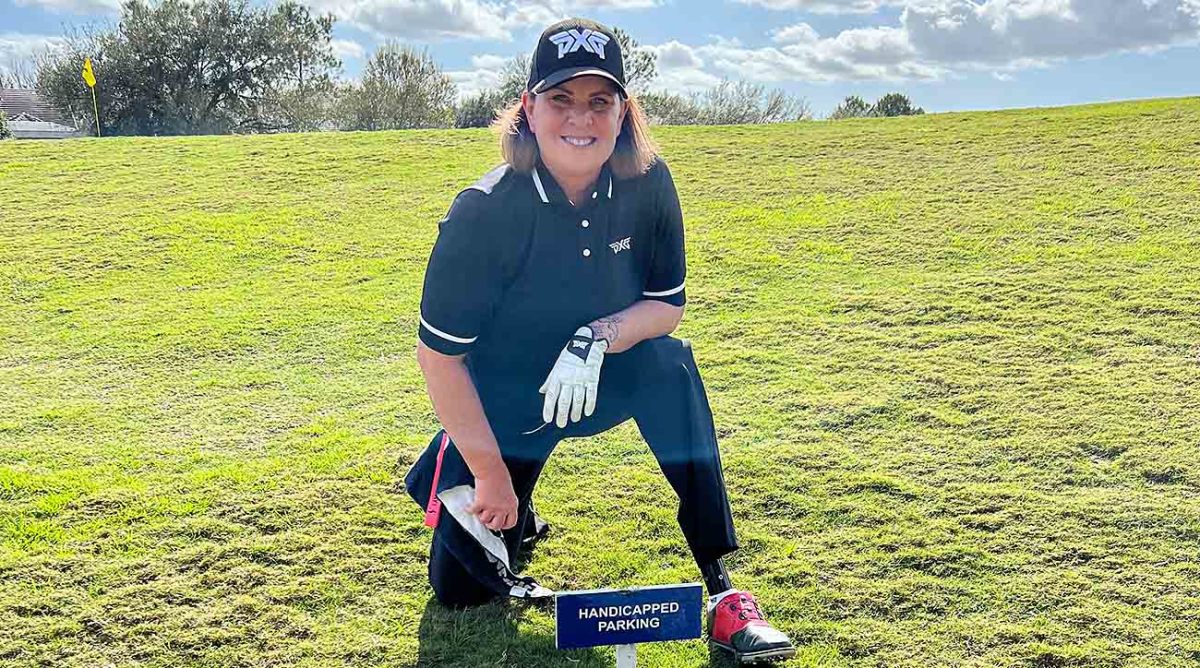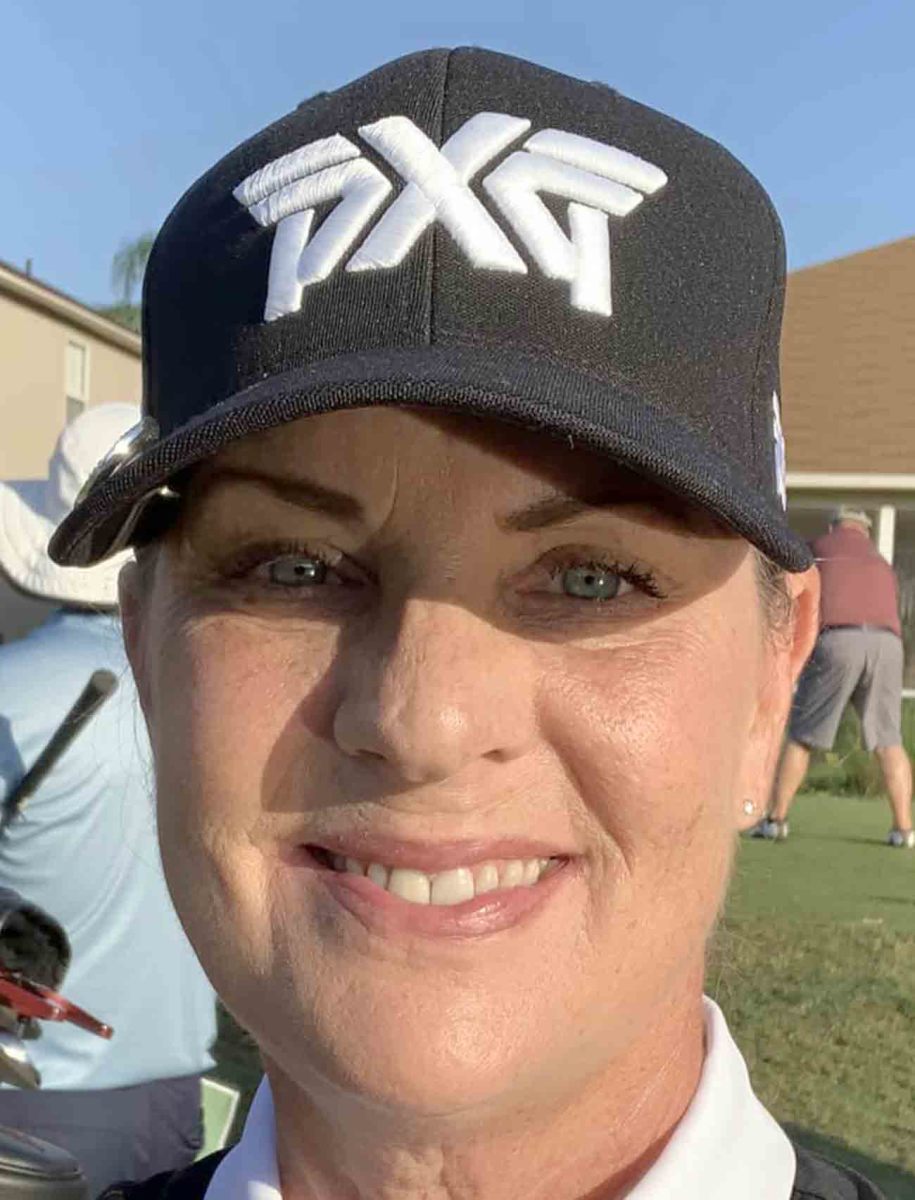Saved by Golf, Patti Valero Is Now Giving Back to the Game

BLOOMINGDALE, Fla. — There is little recollection of the evening that changed her life, only the before and after parts that she’s been through a million and one times. Patti Valero routinely got on her motorcycle near her Tampa home, only to be involved in a random, horrific accident that amazingly led her to golf.
Valero, a 25-year veteran of the Hillsborough Fire and Rescue Department Station 30 as a firefighter paramedic, was witness to her share of difficult circumstances due to her job. That’s why Valero is fully aware she is fortunate to be alive—and used golf to keep her that way.
Only a block from her home, Valero was hit by a truck going the wrong way to a late-night party. The driver was drunk and Valero was in serious distress. Were it not for the quick actions of a resident who witnessed the accident and called 911, along with Fire and Rescue personnel, this story would be far different.

“I broke a couple of rules that night,’’ Valero said. “I blamed myself for a long time. Quite awhile. It was late. But I came to the realization that everybody is going to go through something. I’m more gratefully to have this happen than something more catastrophic.’’
For Valero to have that attitude is quite remarkable. The year was 2009 and the accident meant the amputation of her left leg from the knee down.
She had gone into cardiac arrest at the accident scene and was transported to St. Joseph’s Hospital in Tampa, where her ordeal was only in the early stages.
“Unfortunately, I saw the picture of it later,’’ she said. “There was no saving it. But it was a very, very long surgery. All kinds of surgeons, vascular guys. I was told most people die due to shock. I was very, very lucky that night of my accident there happened to be a superlative trauma surgeon working at that hospital.
“I was supposed to be there for six to eight weeks but only needed two. They have these tasks you have to master and I mastered them and so they let me go home. I think it was probably because I was in such good shape from working. It’s such a physical job. That helped me do as well as I did. And while I never cried about losing my leg, I cried over the frustration. All I focused on was getting back to work.’’
And she did. A year later. It took her a little longer to get to golf, even though she was around the sport growing up, Valero never got into it seriously until she somewhat spontaneously decided to give it a try in 2017.

Valero had gone back to her original station and her original position. A love for bowling was put aside because of the limitations she had with her left leg. By chance, she found golf. She noticed a couple of golf clubs sitting in a back room, went and found some golf balls, and started hitting them.
“I didn’t know what I was doing,’’ she said. “I started hitting more and found it frustrating. But I had to do something. So I went to Play it Again Sports, bought three clubs, went right up the street to a driving range that is no longer there and met with four elderly gentlemen who each had their own disabilities.
“And they started talking to me about how to hit the ball. And then that kind of progressed to going out there more and more and more.
“Golf is either instant gratification or it’s not. But once you hit a few balls really well out here, you feel like you can do this. It’s the feedback. Even if it’s negative feedback, I’ll take that and want to turn it into something good. I don’t worry about hitting it in the water or in the woods. I try to take that information and not do it again.’’
Valero turned her brush with golf into a passion. She is a frequent competitor in Adaptive Golf tournaments, and if you saw or read anything about the United States Golf Association’s first foray into a national competitive championship this past summer at Pinehurst, it is obvious there is a growing number of people with disabilities who not only have taken up the game but excel at it.
She works with a coach, Vicki Ackerman, a former LPGA Tour pro who teaches at nearby Buckhorn Golf Club.
Along the way, Valero was noticed by PXG, the Arizona-based club company that made her part of its "PXG for Heroes Squad." As part of that relationship, Valero gets the newest PXG clubs and apparel to show off, as well as help with finding tournaments to either play or promote.
Having won more trophies than she can count, Valero has moved more into a promotional role with adaptive golfers. One is the Heroes United Golf Scramble League. Now retired, Valero spends her own money to attend whatever events she can.
“I have decided to think less about serving myself and start serving others,’’ she said. “They tend to throw all different kinds of disabilities into one pie and I’ve started playing more tournaments that are not just adaptive golf, but more mainstream and focused on charity.
“The donations they get seem to be a lot higher and they have more visibility. The USGA had that great tournament at Pinehurst earlier this year, there are a lot of people who have never seen someone like me. They’re very interested to come out and either play or donate to a tournament where I’m playing. I don’t know if they want to just see if I can really play, or it just takes a lot of guts to play. A lot of times I’m the only woman. I can’t hit it 300 off the tee, but I hit it straight and can get it up there.
“I’ve won so many of these adaptive tournaments that it seemed to be self-serving. I was getting away from the reason I feel this happened to me. I got involved to bring awareness and light to people who feel like their light is almost out.’’
Valero estimates she plays about 20 tournaments per year. The goal now is more to support them than win them.
“I’m so grateful,’’ she said. “I’m so grateful golf found me and golf is happy with me. Even if I shot 120, I’d still play. I might make the groups behind me not happy, but I’d still play. When I first started playing, that’s where I was. But not for long. It was just about hitting balls getting better. And that’s what I continue to do.’’
